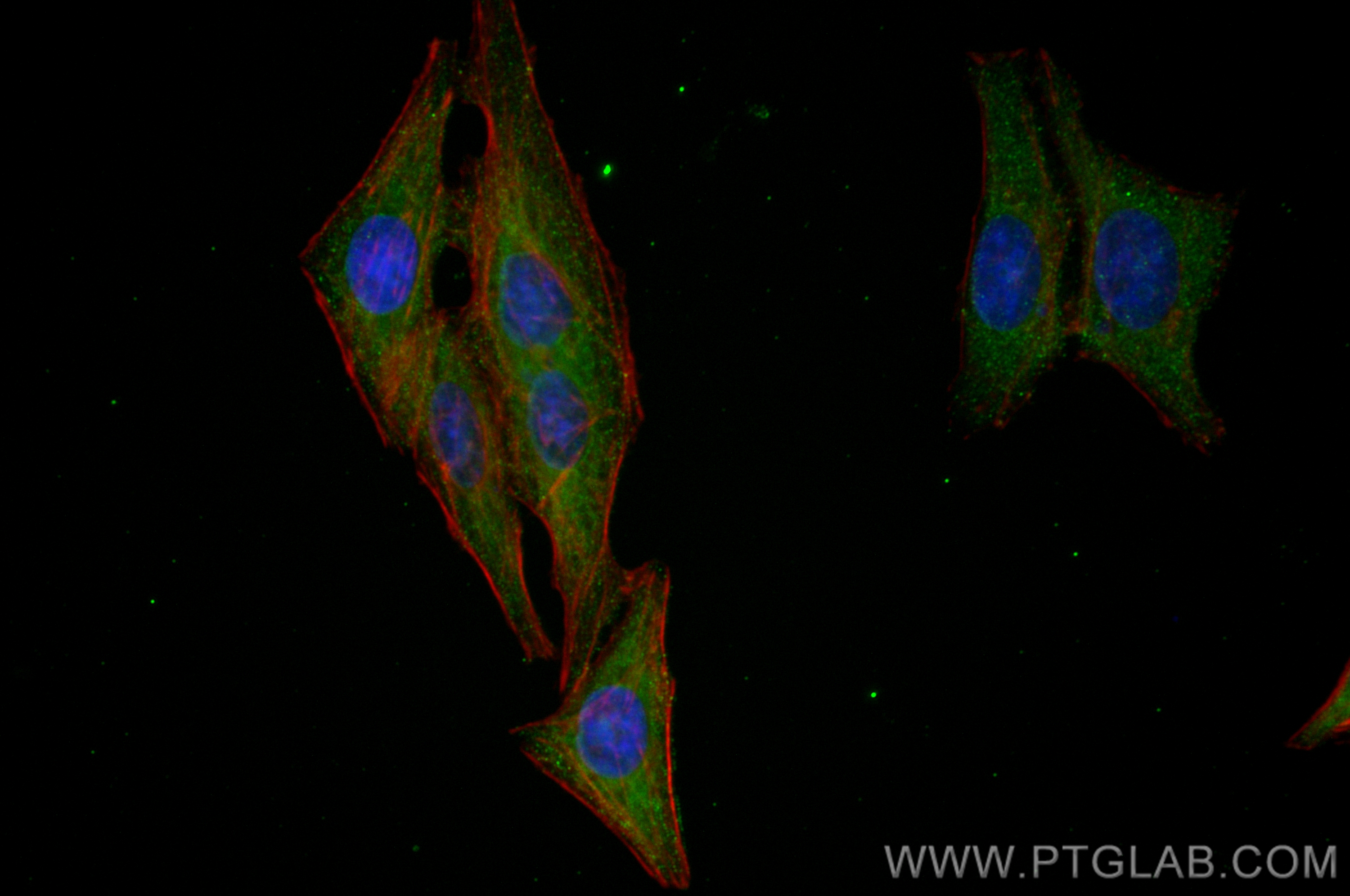验证数据展示
经过测试的应用
| Positive IF/ICC detected in | HepG2 cells |
For other applications, we recommend the unconjugated version of this antibody, 83532-3-PBS
推荐稀释比
| 应用 | 推荐稀释比 |
|---|---|
| Immunofluorescence (IF)/ICC | IF/ICC : 1:50-1:500 |
| It is recommended that this reagent should be titrated in each testing system to obtain optimal results. | |
| Sample-dependent, Check data in validation data gallery. | |
产品信息
CL488-83532-3 targets SYNPO2L in IF/ICC applications and shows reactivity with human samples.
| 经测试应用 | IF/ICC Application Description |
| 经测试反应性 | human |
| 免疫原 | SYNPO2L fusion protein Ag34027 种属同源性预测 |
| 宿主/亚型 | Rabbit / IgG |
| 抗体类别 | Recombinant |
| 产品类型 | Antibody |
| 全称 | synaptopodin 2-like |
| 别名 | |
| 计算分子量 | 977 aa, 102 kDa |
| GenBank蛋白编号 | BC142635 |
| 基因名称 | SYNPO2L |
| Gene ID (NCBI) | 79933 |
| RRID | AB_3673267 |
| 偶联类型 | CoraLite® Plus 488 Fluorescent Dye |
| 最大激发/发射波长 | 493 nm / 522 nm |
| 形式 | Liquid |
| 纯化方式 | Protein A purification |
| UNIPROT ID | Q9H987 |
| 储存缓冲液 | PBS with 50% glycerol, 0.05% Proclin300, 0.5% BSA , pH 7.3 |
| 储存条件 | Store at -20°C. Avoid exposure to light. Stable for one year after shipment. Aliquoting is unnecessary for -20oC storage. |
背景介绍
SYNPO2L belongs to the synaptopodin family and is an actin-associated protein that may play a role in modulating actin-based shape. SYNPO2L is involved in the positive regulation of Rho protein signal transduction and the positive regulation of stress fiber assembly. Loss-of-function variants in the SYNPO2L gene are associated with atrial fibrillation (PMID: 33768119).
实验方案
| Product Specific Protocols | |
|---|---|
| IF protocol for CL Plus 488 SYNPO2L antibody CL488-83532-3 | Download protocol |
| Standard Protocols | |
|---|---|
| Click here to view our Standard Protocols |
